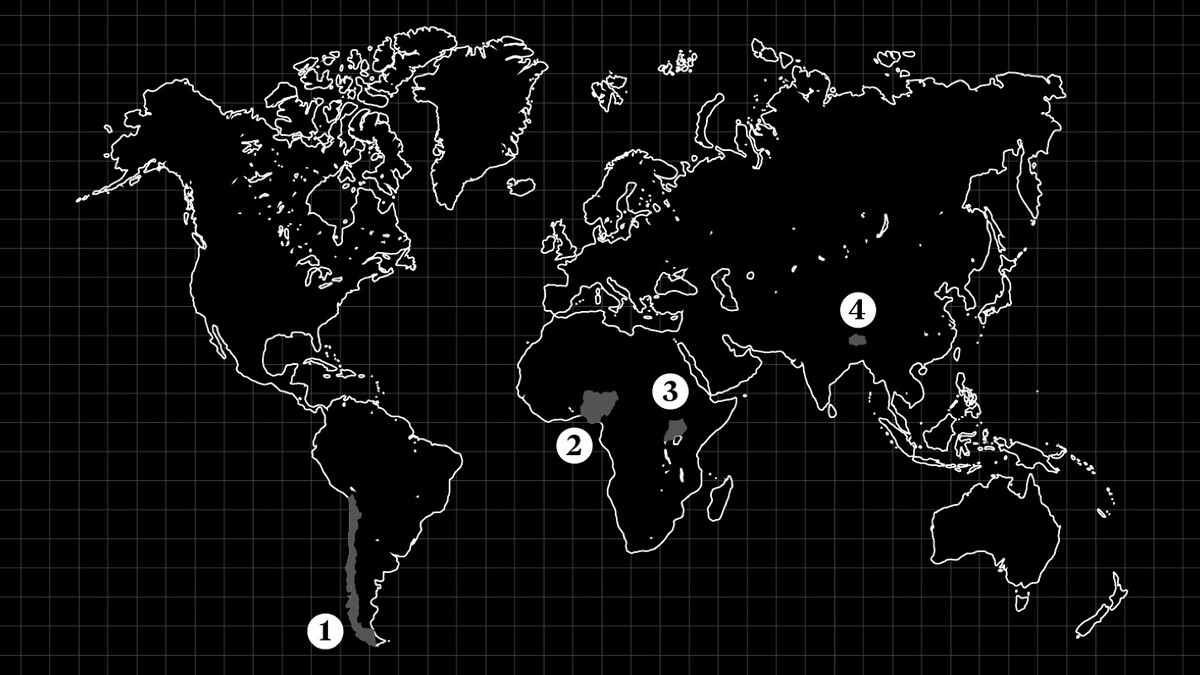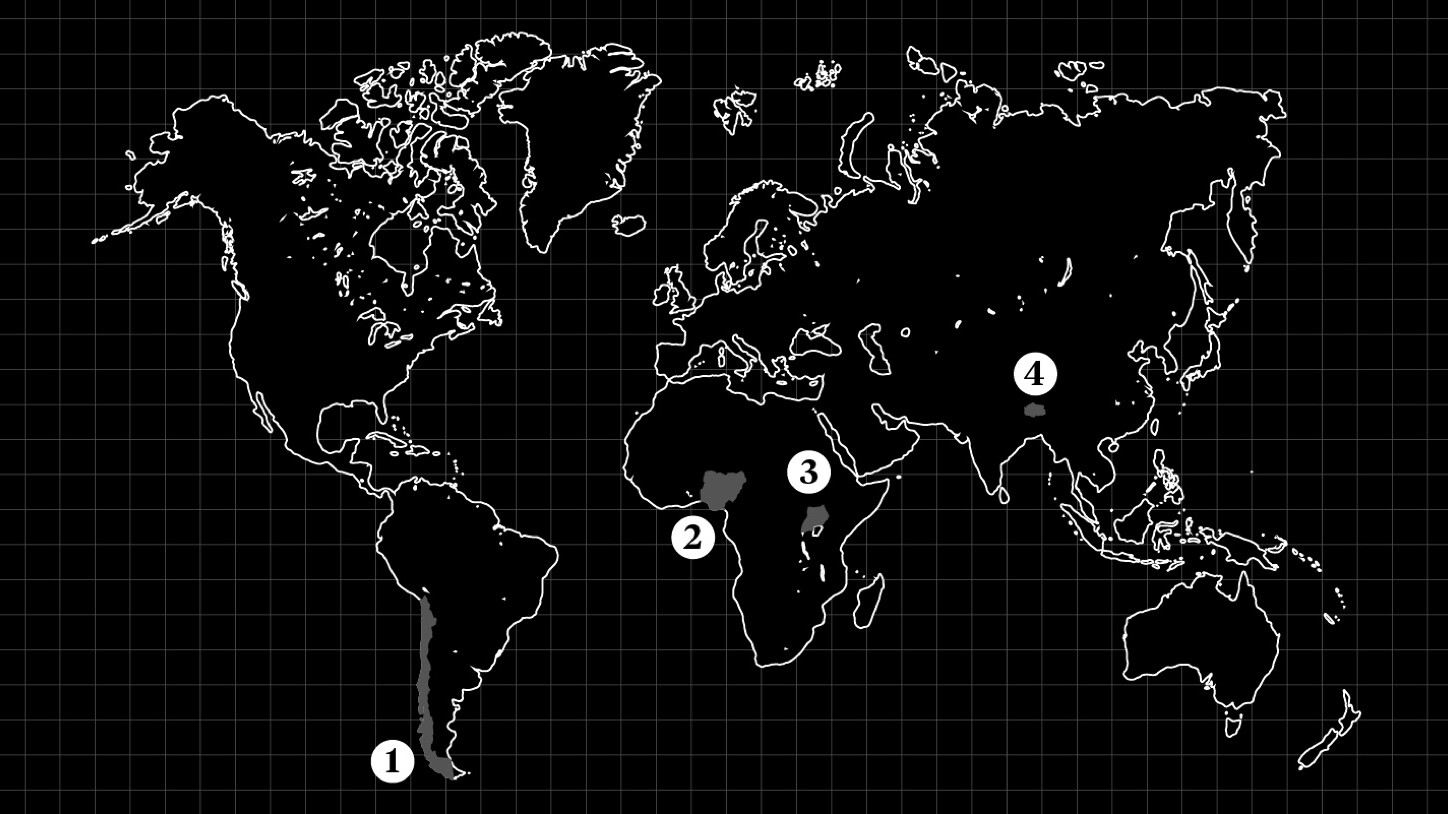Universities in Latin America, Africa, and South and South East Asia are the focus on this first edition.
The recently established fellowship program seeks to encourage professionals and universities to submit joint applications for new and relevant courses responding to pressing concerns about the built environment. This unique teaching fellowship program is awarding four grants totaling 233,000 Euros for courses to begin in 2024 in the three regions. The new university-level courses will amplify and enhance debate and learning around well-being and cities themes used for past editions of the prestigious OBEL AWARD. With applications from 19 different countries, the winners of the first cycle will teach at two universities in Africa, one in Latin America, and one in South East Asia.
The 2023 fellows are:
Laia Celma, Universidad Pontificia, Chile.
Adeyemo Shobunbi, Yaba College of Technology, Nigeria.
Priscilla Namwanje, International University of East Africa, Uganda.
Nooshin Esmaeili, College of Science and Technology, Buthan.
Although initially stipulated one award for each of the three designated regions, the proposals from the African continent were especially strong. Therefore, two fellowships for Africa have been awarded, one focusing on well-being and architecture and the second one on cities.
The parameters for the inaugural cycle of the fellowship looked for new university subjects on well- being and architecture, and seminal ideas for cities (themes for the OBEL AWARDS in 2019 and 2021). In order to vie for a grant of up to 75,000 Euros each, potential fellows from anywhere in the world applied along with universities from one of three designated regions (Africa, Latin America, or South and South East Asia).
Unlike other grants that recognize work already undertaken or faculty members already in academic institutions, the work of the Henrik F. Obel Foundation is geared toward the future, creating and sharing new knowledge in favor of people and the planet. Potential fellows who are practicing professionals are ideal candidates for the award. The one-time fellowship seeks impacts that go beyond the classroom and includes creative ideas for new pedagogical approaches and subject matter. The Foundation with external advisors chose course proposals that would allow new voices to become part of a university, teaching one or two subjects beginning in 2024.
Jesper Eis Eriksen, the executive director of the Henrik F. Obel Foundation said, “we are always looking towards the future and how we might contribute new knowledge in response to the many challenges facing our built environment. Supporting quality education is a key concern of the foundation and all our programs.”
All winning fellows will share their curriculum and results with the Henrik F. Obel Foundation and these will form an open library for other academic institutions and faculty to share the experiences and extend the learning beyond the grant year and physical location.
Upcoming 2024 edition
The 2024 Teaching Fellowship program will focus on the themes of cities or adaptation. The potential candidate universities for the in 2024 edition will be located in Australia and countries primally in South Asia. Full information will be published in the spring of 2024.
About the Teaching Fellowships
The aim of the OBEL AWARD Teaching Fellowships is to bring the professional and academic realms closer together by enhancing the debate and learnings of the themes of the award. These themes reflect pressing issues and express the potential of architecture and design to positively impact our built environment.
About the OBEL AWARD
The OBEL AWARD is an international prize for architectural achievement. The aim of the award is to honour recent and outstanding architectural contributions to human development all over the world—architectural contributions considered broadly as any contribution that helps change our physical, designed environment for the common good. Each year, the OBEL AWARD jury establishes a particular focus for the prize for the year, always keeping in mind the constant overall goals of the award.
*Images above: (2) A research studio that addresses the past, the present, and the future of “Mina Invierno” understood from its regional impact, will be taught by Spanish architect Laia Celma at the Pontificia Universidad Católica de Chile. The interdisciplinary connections and different scales to be dealt with in the two courses proposed by her are in line with the concerns and approach of the OBEL AWARD. (3) With the overall title, “New Alternative Nigerian Architecture: Responsive and appropriate contemporary design for the Tropics”, Adeyemo Shokunbi will teach at Yaba College of Technology in Lagos, a course over two semesters on well-being through architecture that is centered on critical design thinking for climate and culturally responsive building. Shokunbi is a practicing architect who returned to Nigeria in 2006 after having studied and worked abroad. (4) Priscilla Namwanje holds a bachelor’s degree in architecture from Makerere University Kampala, Uganda, and more recently a master’s from TU Delft. She has undertaken impressive research, worked with various firms in Kampala, and been recognized as first Prize winner Holcim Foundation Awards, Next Generation—Middle East & Africa. Through her work and course at the International University of East Africa, she will contribute to a new language and approach to understanding African cities. (5) Nooshin Esmaeili is based in Calgary, Canada where she earned a master’s in architecture in 2011 and is currently a PhD candidate. She will teach an undergraduate studio course at the College of Science and Technology in Bhutan reflecting the idea that Bhutanese rural settlements play a crucial role in shaping well-being in architecture by intertwining the built environment with natural surroundings, fostering a sense of community, and promoting sustainable living. All winning fellows will share their curriculum and results with the Henrik F. Obel Foundation and these will form an open library for other academic institutions and faculty to share the experiences and extend the learning beyond the grant year and physical location.








